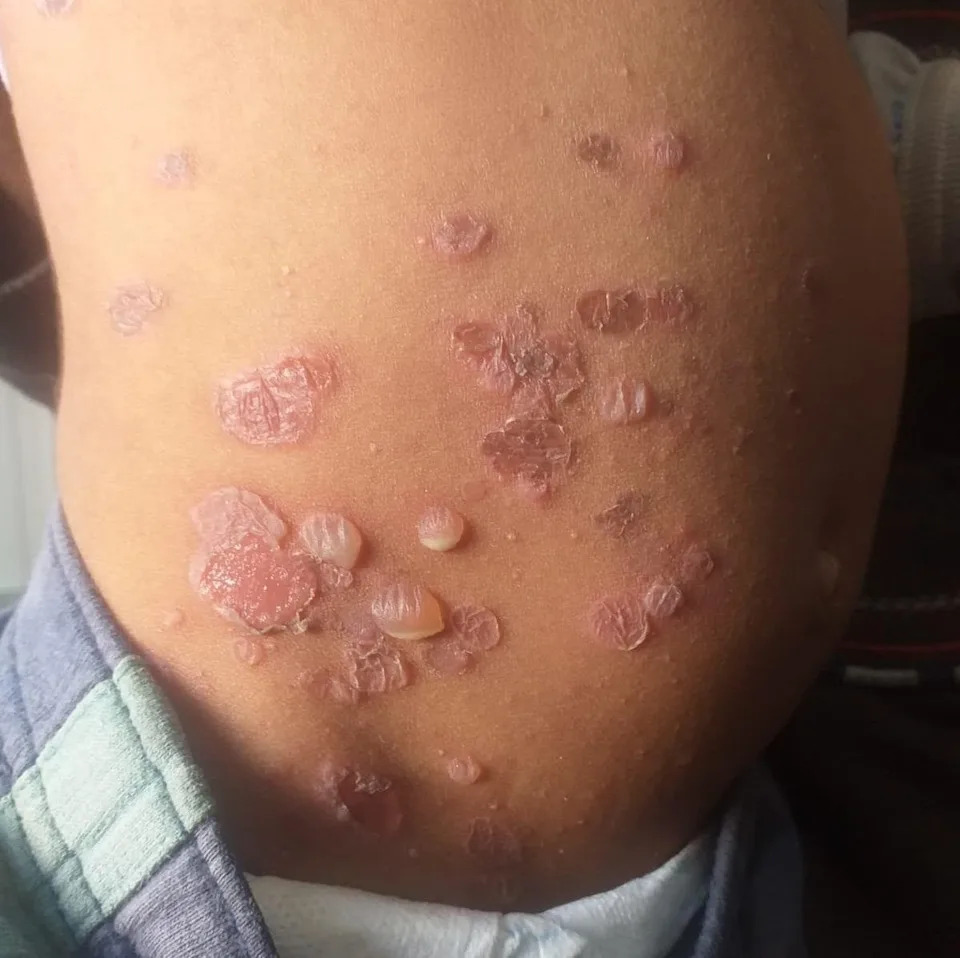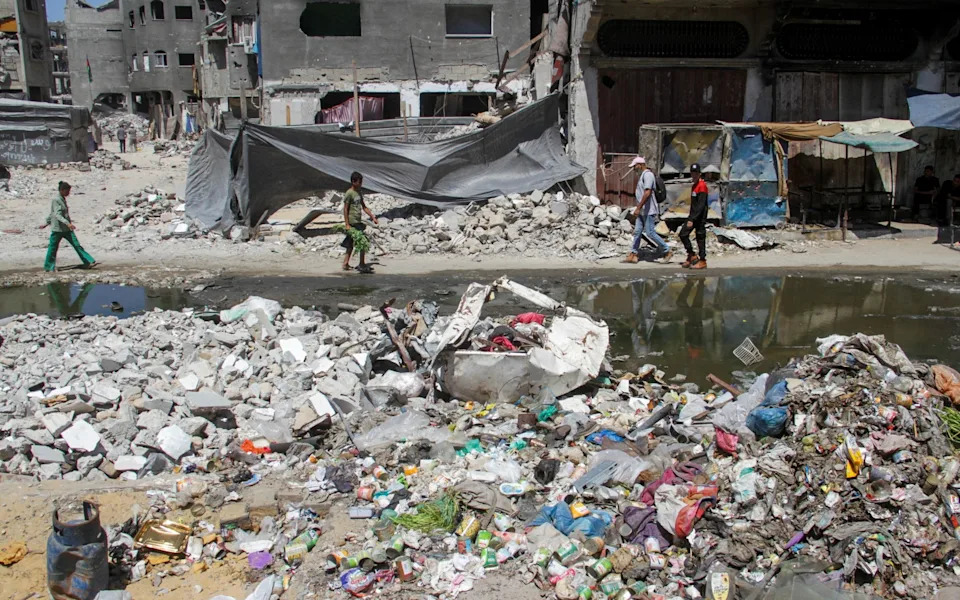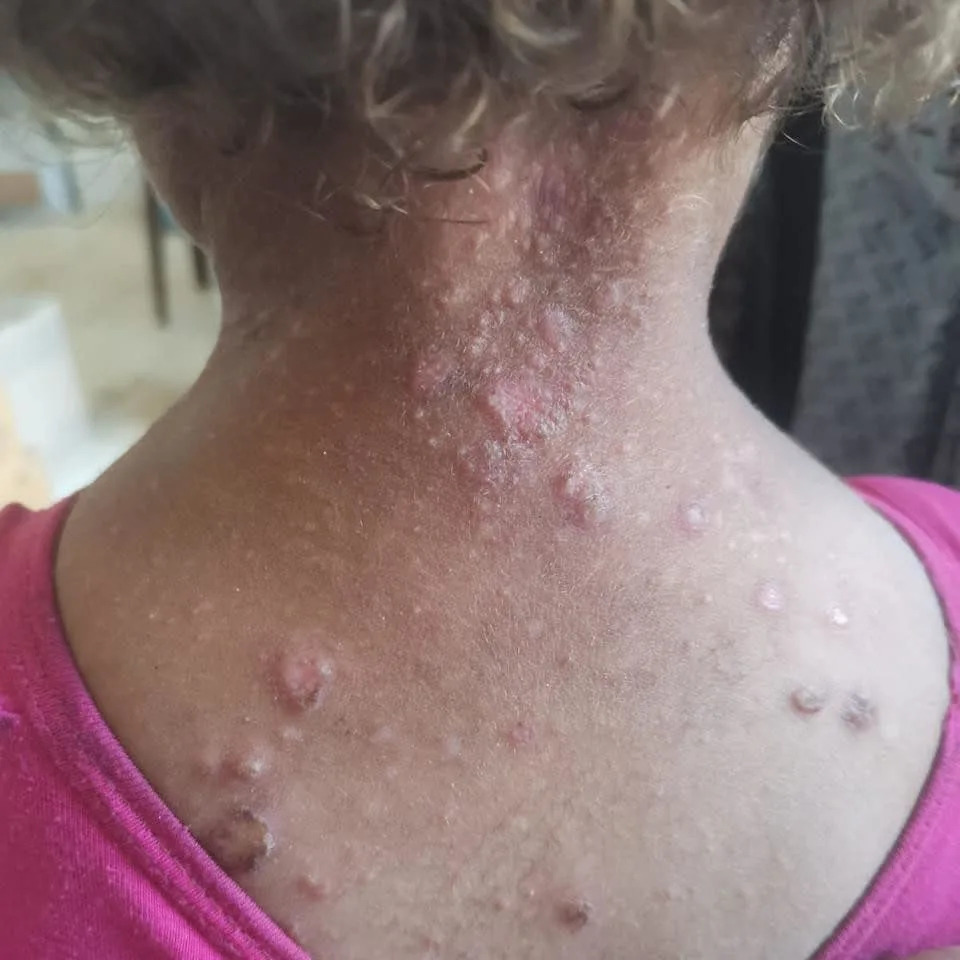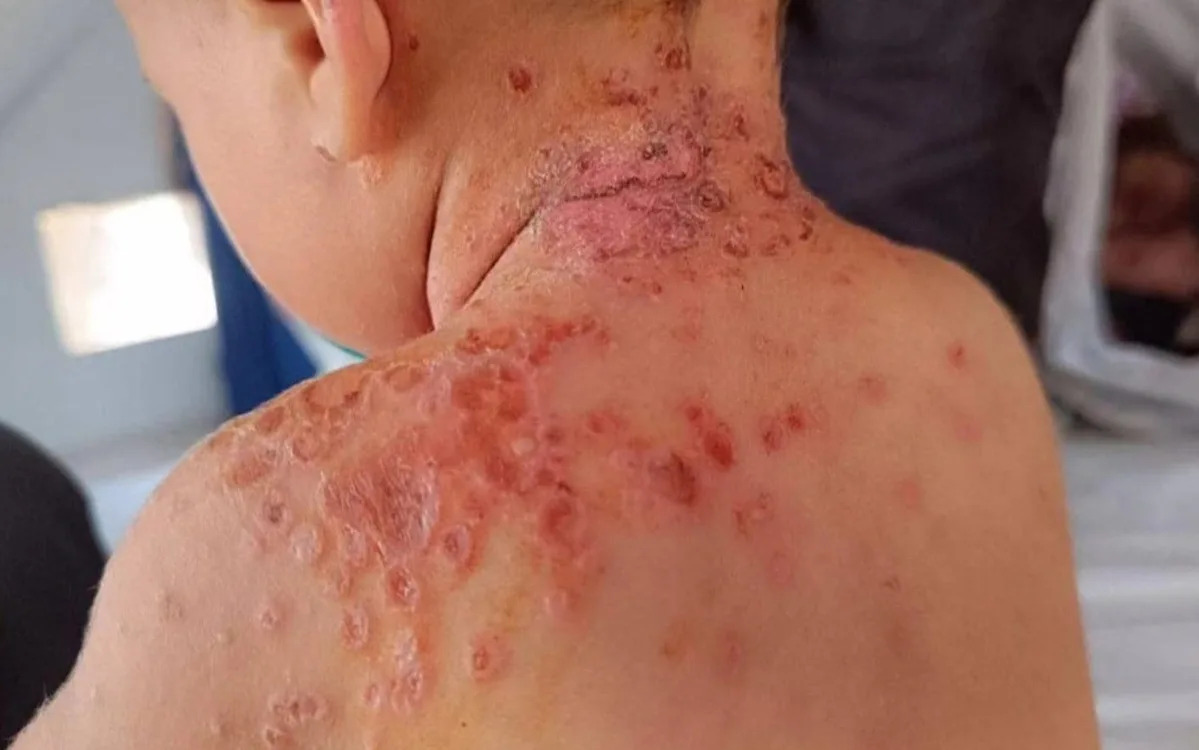A new epidemic of life-changing skin infections is raging in Gaza, aid organisations have warned.
Medical charities say highly infectious skin diseases are becoming more severe and widespread due to a mix of factors including poor sanitation, the summer heat and frequent military displacement orders disrupting treatments.
Although skin infections caused by bacteria, viruses, fungi, and parasites such as lice are affecting adults and children, it is the young and those with weakened immune systems who are worst hit.
Medical Aid for Palestinians (MAP) this month recorded 713 skin infections in children in just four clinics, with nearly 400 recorded in the past two weeks.
Photos shared with The Telegraph show acute cases of Bullous Impetigo, a highly infectious bacterial skin disease characterised by large fluid-filled blisters. It is usually preventable with good sanitation and topical antibiotics but can become life threatening if left untreated, causing cellulitis, kidney damage and scarring.

A young child suffers with Bullous Impetigo, a skin disease characterised by large fluid-filled blisters – Medical Aid for Palestinians (MAP)
Other images show children suffering from scabies, a skin condition caused by tiny mites that burrow into the skin and cause an intense rash.
The World Health Organization (WHO) says it is a public health problem affecting all ages and socioeconomic groups in Gaza.
The itching and pain, aggravated by soaring temperatures, can be extreme, says medics.
With limited access to water and sanitation, experts say the incidence of skin infections is climbing fast.
Cleanliness is near impossible in Gaza’s many displacement camps. There is only one toilet available for every 700 people, according to data from European Civil Protection and Humanitarian Aid Operations, a wing of the European Union.
Limited access to clean water in Gaza has also caused a rise in skin diseases, said Médecins Sans Frontières (MSF).
The medical charity on Wednesday accused Israel of deliberately depriving Gazans of water, by blocking imports of critical water safety systems. Only one in ten of its requests to import water desalination items had been approved since June 2024, it said.

Swathes of rubbish and sewage discharge across the Strip compounds the rapid spread of disease – REUTERS
The relentless bombing campaign has also repeatedly damaged critical water infrastructure in the Strip. Of the 196 desalination plants that are publicly run by charities and non-profits in Gaza, more than 60 per cent are non-functional, said MSF.
Virginia Moneti, MSF emergency medical project lead in Gaza, said infections were also linked to the ongoing displacement of populations.
“Access to health care is increasingly difficult as facilities end up in areas where evacuation orders are issued or are directly targeted,” she told The Telegraph.
At least 1.9 million people – around 90 per cent of Gaza’s population – have been displaced during the war, according to the UN. Many have been uprooted up to ten times or more, it added.
Jamal Salim, Community Health worker with MAP, said that in many cases skin infections were running their natural course as treatments could not be accessed or maintained.
“Untreated skin infections can lead to abscesses, cellulitis, and in severe cases, systemic infections,” he told The Telegraph
“Some children also develop scarring or long-term skin damage, especially when medication is not available.”

A scabies rash on the neck of a young Gazan girl – Medical Aid for Palestinians (MAP)
Food shortages are further compounding the issue, say experts.
High levels of malnutrition mean that patients struggle to heal from skin diseases as many people have “weakened immunity,” said Mr Salim.
Aid groups have repeatedly accused Israel of orchestrating a deliberate hunger crisis in the enclave, with the UN-backed global hunger monitor last month warning that “the worst-case scenario of famine is currently playing out in the Gaza Strip”.
The United Nations human rights office said on Tuesday Israel was not letting enough supplies into the Gaza Strip to avert widespread starvation.
Israel has denied responsibility for hunger in Gaza, accusing Hamas of systematically looting aid shipments – an allegation Hamas denies.
Protect yourself and your family by learning more about Global Health Security

